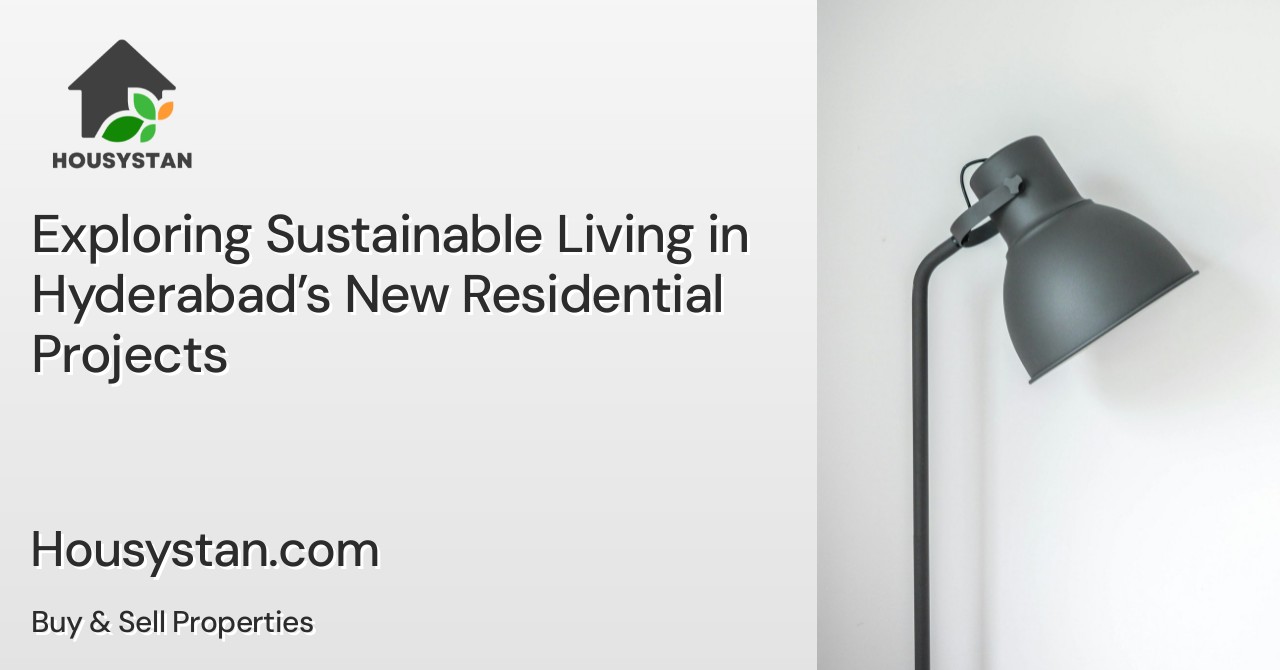Exploring Sustainable Living in Hyderabad’s New Residential Projects
Read latest blogs and articles from Housystan

The Information mentioned here was last updated on:
29/1/2026Hyderabad, a city renowned for its rich heritage and rapid modernization, is now embracing sustainable living through innovative residential projects. As urbanization accelerates across Telangana, the demand for eco-friendly homes has surged. Homebuyers in Hyderabad are increasingly seeking communities that prioritize environmental responsibility, energy efficiency, and a healthier lifestyle. This shift has inspired leading real estate developers to design new housing complexes that feature green practices, making Hyderabad a pioneer in sustainable urban development.
Modern residential projects in Hyderabad incorporate a wide range of eco-conscious features. From solar power systems and rainwater harvesting to advanced waste management solutions, builders are integrating sustainable technologies into every aspect of community planning. These eco-friendly apartments and villas often utilize locally sourced materials, which not only reduce the carbon footprint but also promote regional economic growth. Furthermore, landscaped gardens, organic parks, and dedicated green spaces enhance the natural beauty of these developments, offering residents a serene and pollution-free environment.
Location is crucial when it comes to sustainable homes. Hyderabad’s new projects are strategically situated in emerging neighborhoods like Gachibowli, Kondapur, and Kokapet, ensuring easy access to public transportation, educational institutions, and healthcare facilities. This thoughtful placement reduces dependence on private vehicles, thereby decreasing overall emissions and traffic congestion. Residents benefit from seamless connectivity while enjoying a sustainable lifestyle within the city’s vibrant core.
- Verified Tenants/Buyers
- Unlimited Property Listing
- Zero subscription/charges fee
Community-driven sustainability is also at the forefront. Many residential complexes in Hyderabad encourage residents to adopt green habits through recycling initiatives, community gardens, and energy-saving programs. These efforts foster a sense of belonging while promoting collective responsibility toward the environment.
Choosing a sustainable home in Hyderabad means investing in the future. Not only do these innovative projects provide comfortable living spaces, but they also support the city’s vision for a greener tomorrow. For those looking to relocate or invest in Hyderabad’s real estate market, exploring sustainable living options ensures both personal well-being and positive environmental impact, making it the ideal choice for forward-thinking homeowners.